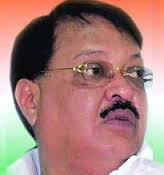Dubai, Jan 5: To mark the birth anniversary of Prophet Muhammad (pbuh) Dubai KCF will be organizing Ishq - e-Rasool conference on Friday, January 8, at Flora Grand Hotel Auditorium Dubai nearby Al Rigga Metro station at 6 p.m. Gulf Ishara, the mouthpiece monthly magazine of the KCF UAE will be released on this occasion.
 Sayyid Thwaha Bafaki Thangal will lead the evening spiritual Majlis with opening prayer. Burda and Na’athe Sherief will be recited by Ustad Abdul Rasheed Haneefi. Winner of Talent Year 2015 State SSF Aashiq Kajuru and Salim Ujire will be awarded. The special guest at the ceremony is Deputy Qazi, Senior scholar of Kodagu Shaikuna Mahmood Musliyar Edappala. KCF UAE Assuffa Dars leader Ibrahim Saqafi Kedumbadi will deliver lecture on “Hubbu Rasool”.
Sayyid Thwaha Bafaki Thangal will lead the evening spiritual Majlis with opening prayer. Burda and Na’athe Sherief will be recited by Ustad Abdul Rasheed Haneefi. Winner of Talent Year 2015 State SSF Aashiq Kajuru and Salim Ujire will be awarded. The special guest at the ceremony is Deputy Qazi, Senior scholar of Kodagu Shaikuna Mahmood Musliyar Edappala. KCF UAE Assuffa Dars leader Ibrahim Saqafi Kedumbadi will deliver lecture on “Hubbu Rasool”.
The Valedictory will be held at 8:15 pm. President of the National Council of the UAE, Abdul Hamid Saadi Isvaramangala will preside over. Minority Welfare Department of Karnataka government and the Wakf minister Qamarul Islam will inaugurate the event.
The first copy of Kannada monthly "Gulf Ishara" Shaikuna Mahmood Musliyar Edappala will be handed over to the consul General of India Dubai HE Anurag Bhushan. NK Muhammad Shafi Sa’adi President State SSF will deliver introductory address.
Editor of Ishara Abdul Hameed Bajpe will introduce monthly magazine. KCF International Committee General Secretary Haji Sheikh Bava, Mangalore, State SSF Vice President Abdul Rahman Rizwi Kalkatta, Usman Haji Zaith, General Secretary KCF UAE National Council, Director of Siraj Malayalam Gulf Version Abdul Hameed PMH Ishwaramangala , Siraj Editor KM Abbas ,ICF GCC General secretary Abdul Azeez Saqafi Mambad, Editor of Prawasi Vayana Malayalam Mohammed Shareef Karasheri, Dr. Sadashiv Bangera, Director of Dubai Thumbe Clinic. Bashir Bolwar (President Al- Khadisa Dubai) M.Ebrahim Muluru (Vice-President BCF Dubai ) among others will attend.
This was announced at a press conference by Mahbub Rahman Saqafi (President KCF Dubai); Kalandar Kabaka (General Secretary KCF Dubai); Saifuddin Patel Aranthod (Secretary of the Reception Committee) and Muhammad Rafeek Kalladka (Secretary KCF Administration Division in Dubai).





Comments
If he was a true Ishq-e-rasool (S.a.w), he would follow the Sunnah with a beard.
Add new comment